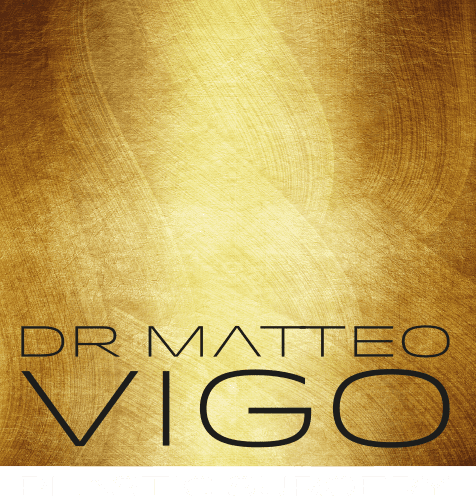Enlarged Male Breasts (Gynecomastia)
Plastic Surgery Dubai | 13 October 2020
Gynaecomastia is the benign (non-cancerous) growth of male breast tissue and can be due to a number of causes. It may be due to hormone imbalance or as a consequence of medication you are taking. It can also be due to alcohol excess or recreational drug abuse. Your doctor will discuss the cause of your gynaecomastia with you. Along with causing swelling of the breast and nipple, gynaecomastia can be uncomfortable and the nipple can become sensitive.
HOW CAN GYNAECOMASTIA BE TREATED?
Some cases of gynaecomastia will get better without any form of treatment. If one of your medications is thought to be causing the gynaecomastia, it may improve with changing or stopping a particular tablet. Your doctor will discuss this with you.
Whilst gynaecomastia itself can be uncomfortable and unsightly, it is not dangerous and no harm will come from having it. When cancer has been ruled out, many men are happy to have no treatment.
Another form of treatment is to have medication. These medications are often good at reducing discomfort and sensitivity but may not reduce the size of the breast.
The third form of treatment involves surgery to your breast.
SURGICAL TREATMENT OF GYNAECOMASTIA
There are three main surgical procedures which can be undertaken:
Liposuction
Liposuction is used to remove the fatty tissue under a general anaesthetic. Small incisions (cuts) are made on the chest wall. A small metal tube (cannula) is used to suck out the fatty tissue. The incisions are then sutured to give a flatter, firmer and better-contoured chest. Any stitches will be of the dissolving type and so do not need to be removed.
Excision of Gynaecomastia
In excisional surgery, I will make a cut around the nipple to remove the breast tissue. This may be combined with liposuction of the breast tissue at the same time.
Male Breast Reduction
If the breast is very large more tissue and skin may have to be removed. This will give more scars. The degree of scarring will depend on how much skin needs to be removed. I will advise you about this.
After Surgery
After surgery for gynaecomastia your breasts will look discoloured and feel firm and swollen. You may need to have a drain (a fine plastic tube) inserted into the breast during the operation. This will be removed seven days after your operation. You should be able to go home the same day. You may be advised to wear a corset for up to six weeks after the operation to help with the swelling. I will advise you where these can be bought. You will not be able to drive home after your operation and it may be two to three weeks before you can drive.
The dressings can be removed after 7-10 days and you should be able to return to work after two weeks. For the first three weeks after the operation, don’t lift anything heavy or do heavy manual work. Most men resume normal activities within two to three weeks.
Risks and Complications
All surgery carries with it some risk. Common side effects of a general anaesthetic include nausea and vomiting. As mentioned earlier, the chest can be swollen and bruised following the operation.
Specific Complications
Haematoma
This is bleeding into the tissues following surgery. It can occasionally lead to patients returning to theatre to stop the bleeding or remove the blood.
Wound infection
This can occur after any kind of surgery and may need treatment with antibiotics or a return to theatre. If your wound becomes red and inflamed you should contact your doctor.
Deep vein thrombosis
This can happen after any operation or general anaesthetic. The risks are reduced by wearing preventative stockings (TEDS) for two weeks.
Poor wound healing
With a male breast reduction problems may occur with the wound. The blood supply to the area around the vertical scar is at its poorest. This may delay healing and very occasionally the wound may break down and leave a small raw area. This gradually heals with time but may take several weeks.
Nipple complications
The operation by its nature partially disrupts some of the blood supply to the back of the nipple. There is a small risk therefore of the nipple dying resulting in its loss. There is a risk of loss or alteration in sensation to the nipple.
Asymmetry
There may be some lasting differences in the size and shape of your breasts following surgery. Most men are asymmetrical prior to the operation.
Scarring
Initially the scars will be bright red lines – in most cases the scars will heal satisfactorily and soften becoming much paler in time, usually within twelve months. Some patients have a tendency to form red and lumpy scars or keloid scars which are broad raised scars. Such scarring will be permanent.
FOLLOW UP
You will be given an appointment to return to the clinic in 7-10 days where the dressings and drain(s) will be removed and the wounds inspected. You will also be reviewed approximately six weeks after your surgery once the bruising and swelling has completely settled.
LONG TERM OUTLOOK
If lipofilling is performed and only fat is removed, weight gain can make the gynaecomastia return. If the breast tissue itself is removed, as in the excision surgery or male breast reduction there is a chance the breast tissue can regrow. You will have medical photography before and after surgery of your chest. There will be nothing which will identify you to anyone else on these and they are used as a record of your treatment.
